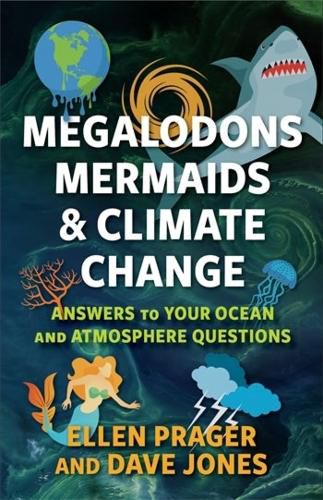Readings Newsletter
Become a Readings Member to make your shopping experience even easier.
Sign in or sign up for free!
You’re not far away from qualifying for FREE standard shipping within Australia
You’ve qualified for FREE standard shipping within Australia
The cart is loading…






Could ancient giant sharks called megalodons still exist in the deep sea? What should you do if stung by a jellyfish? Can we predict lightning strikes and how is climate change affecting hurricanes?
With humor, easy-to-understand language, and fun illustrations, marine scientist Ellen Prager and meteorologist Dave Jones use frequently asked and zany questions about the ocean and atmosphere to combat misinformation and make science engaging and understandable for all. From dangerous marine life, coral reefs, and the deep sea to lightning, hurricanes, weather forecasting, the Sun, and climate change, they reveal what's fact, what's fiction, and how to find science-based answers. This book is perfect for anyone curious about the world around them, educators, science communicators, and even scientists who want to learn about and explain topics outside their expertise.
$9.00 standard shipping within Australia
FREE standard shipping within Australia for orders over $100.00
Express & International shipping calculated at checkout
Could ancient giant sharks called megalodons still exist in the deep sea? What should you do if stung by a jellyfish? Can we predict lightning strikes and how is climate change affecting hurricanes?
With humor, easy-to-understand language, and fun illustrations, marine scientist Ellen Prager and meteorologist Dave Jones use frequently asked and zany questions about the ocean and atmosphere to combat misinformation and make science engaging and understandable for all. From dangerous marine life, coral reefs, and the deep sea to lightning, hurricanes, weather forecasting, the Sun, and climate change, they reveal what's fact, what's fiction, and how to find science-based answers. This book is perfect for anyone curious about the world around them, educators, science communicators, and even scientists who want to learn about and explain topics outside their expertise.